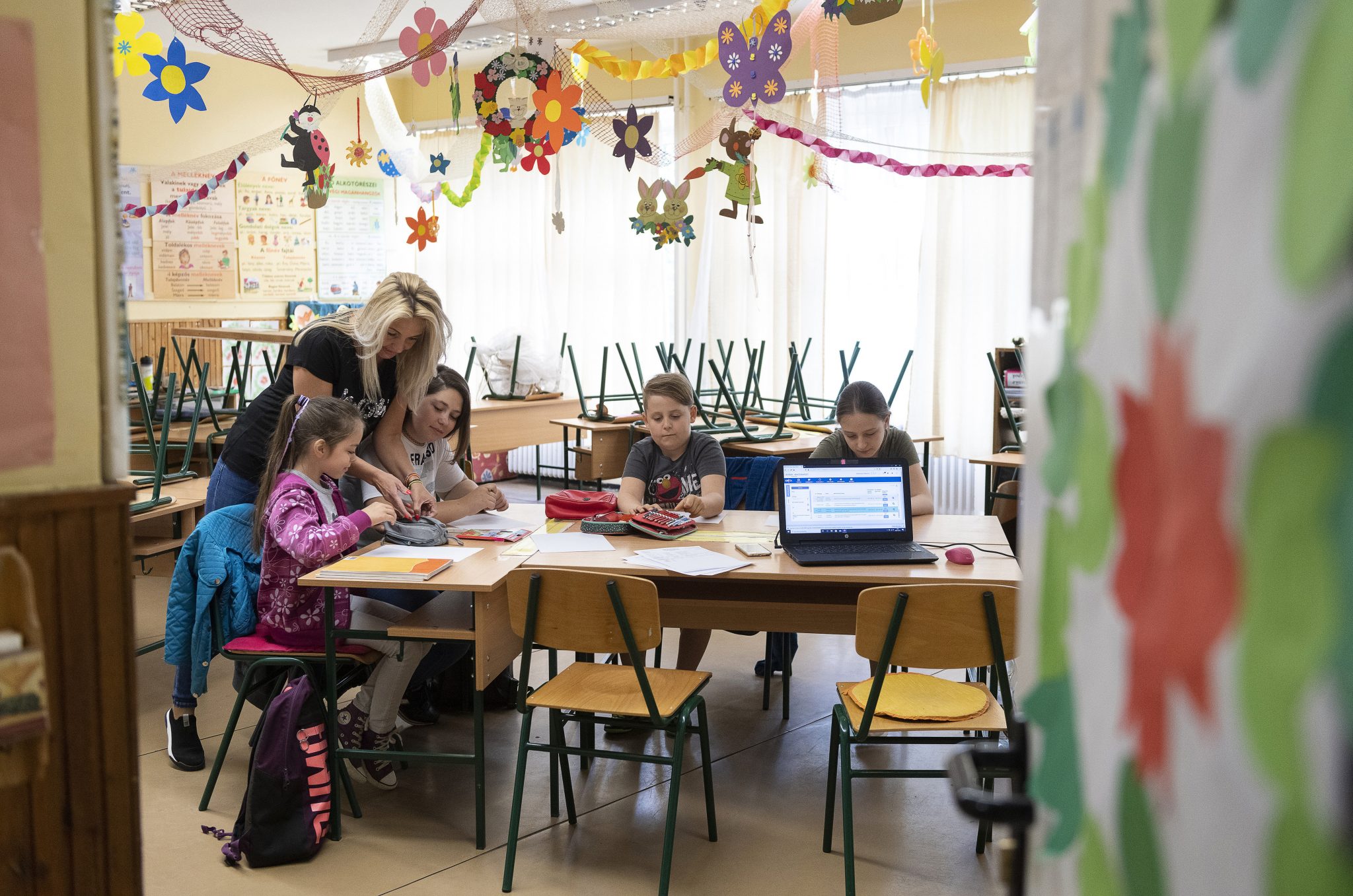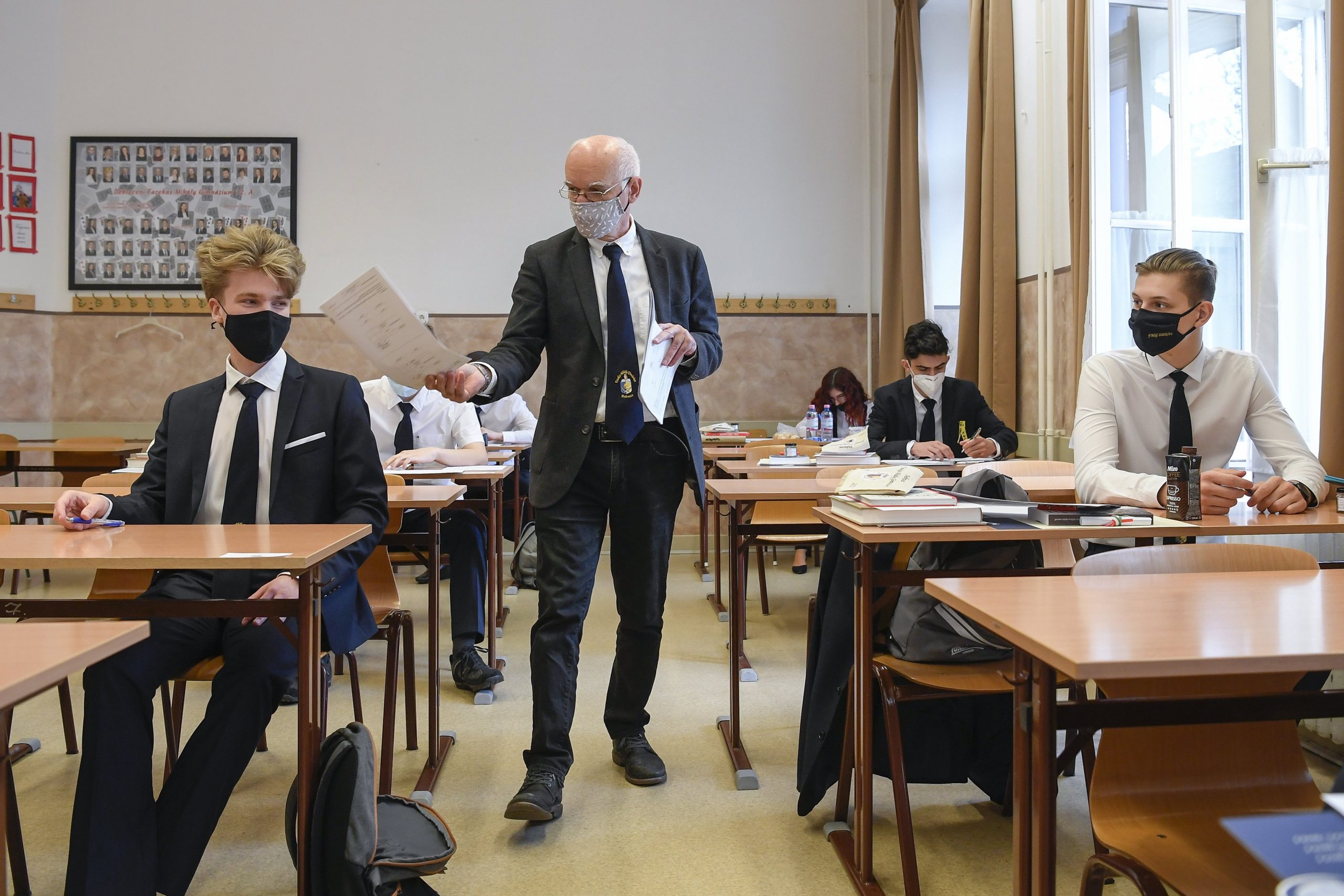
In Hungary, teachers earn roughly 66-75% of the national average wage, the lowest ratio in the region.Continue reading

An indefinite teachers’ strike organized by several unions began in Hungary at 8 a.m. Wednesday morning. Teachers have been trying to negotiate with the government for years, writing numerous open letters, holding warning strikes, and lately have even resorted to civil disobedience. First and foremost, they want more pay and a reduction in their workload. Since these demands did not lead to any results, the unions decided to start an indefinite strike. This means that teachers will not hold classes, or only some of them, for the next few days.
This article was originally published on our sister-site, Ungarn Heute.
“The strike is organized because the government must no longer hesitate to respond to the neglect of public education. We ask all parents, colleagues, and Hungarian citizens to support our protest action,” reads a Facebook appeal by the teachers.
There has long been a dispute between the unions and the government over the legality of the strike, with the former claiming that it is a fundamental right that should not be restricted, while the latter points to the previous “civil disobedience” and argues that the work suspension was not legal because there was no agreement on the fulfillment of “sufficient services.”
According to the union, those who participate in the demonstration will not attend classes in the first round from March 16 to 18, but in the next three days, from March 21 to 23, they will hold 50 percent of the canceled classes. But these will also be “strike days.” The Teachers’ Union (PSZ) chairwoman also confirmed that childcare will be provided during the first three days of the strike for those whose parents cannot stay home.
Regarding the ministry’s request to consider postponing the strike due to the Russian-Ukrainian war, Zsuzsa Szabó noted that the unions have been negotiating with the government through a strike committee since mid-October, without success.
The problems in education have nothing to do with the war in Ukraine or refugees, so we will not postpone the strike. We are striking for the future of our children and for the fact that there are enough teachers in the education system, because without teachers the state will not be able to fulfill their basic tasks.”
In addition to teachers, students will also express their solidarity by walking together to the Parliament in Budapest on March 16. So far, several schools in Budapest and in the countryside have reported that they will join the demonstration.
Teachers had already held a warning strike on January 31, in which nearly 27,000 education workers participated.
A new conflict between the cabinet and the unions was sparked by the government’s February 11 approval of a Corona Emergency decree requiring “strict public service delivery” during the teachers’ strike. This made the strike virtually impossible to hold.
The main demand of teachers is that their salaries be linked to the actual minimum wage again. Following an amendment from 2015, the level of the minimum wage from 2014 was made the basis for the salary projection, rather than the sliding sum (the minimum wage at that time was HUF 101,500 (EUR 285)). As a result, teachers’ wages have not followed the increase in the minimum wage over the past seven years. So while the minimum wage has doubled since then, teachers’ salaries have remained the same, resulting in a young teacher today earning as much (or even less) than a 17-year-old who has just finished vocational school.
Teachers also say that they are overworked and want to work fewer hours, i.e. they want their weekly compulsory hours to be set at 22 hours. One of the demands has already been met: the obligatory COVID-19 vaccination was recently abolished.
Head of the Prime Minister’s Office, Gergely Gulyás, recently said that the government agrees with the teachers’ efforts and is negotiating with the European Commission to be able to use hundreds of billions of forints of EU funds for wage increases.
“However, in addition to teachers, we must also take into account the interests of students and parents,” he added. That is why the government urged teachers to consider not participating in the strike, or even postponing it.
Featured image: A teacher hands out test booklets during the written Hungarian language and literature exam at the Fazekas Mihály High School in Debrecen on May 3, 2021. Photo by Zsolt Czeglédi/MTI